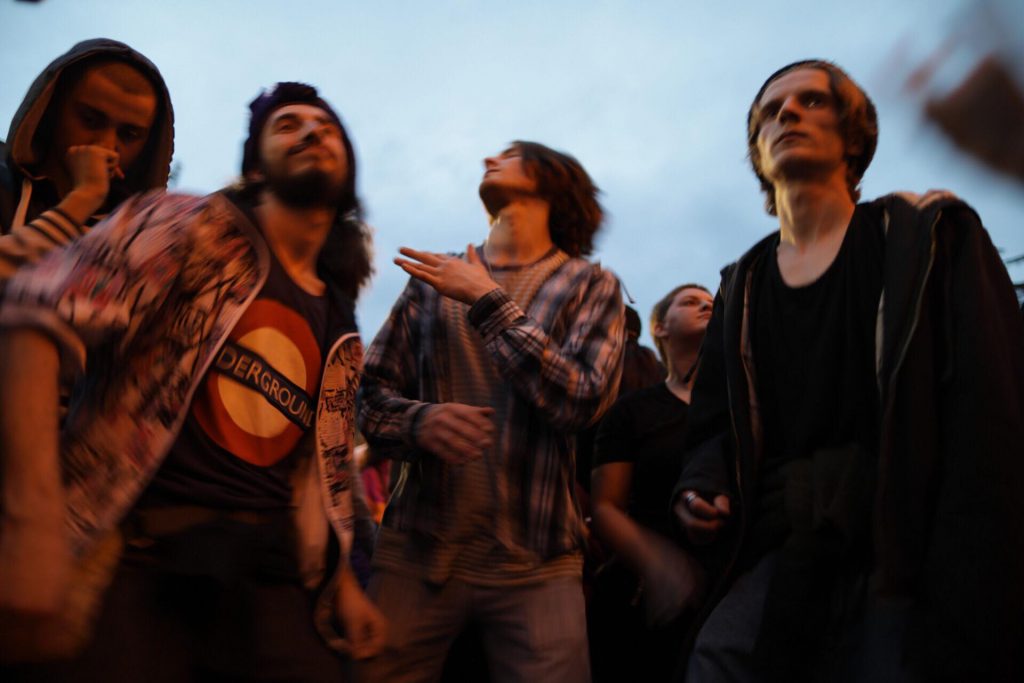by William Dunbar
On Friday night of 11 to 12 May, hundreds of riot police descended on two of Tbilisi’s most famous nightclubs. Brandishing machine guns and dressed in paramilitary regalia, the police terrorized the clubbers at Café Gallery and Bassiani, dragging dozens of revelers off the dance floor and bundling them into cars.
Although the purpose of the raids was – ostensibly – to target drug dealers, none was arrested – despite earlier police reports, eight small-scale dealers were reported to have been arrested in the hours before, outside the clubs.
In reality, the raids were not about the drug trade.
They were an attack on the way of life of the young, non-conformist, pro-western people of Tbilisi. The sort of people who go clubbing.
Whoever ordered them – and, let’s face it, a multi-location, several hundred officer operation with military grade weapons in the heart of Tbilisi is only signed off at the highest level – wanted to send a message: if you are one of the people who go to or sympathize with the modern, trendy, LGBT-friendly clubs of Tbilisi, you are not safe. The state will harass and victimize you for being who you are.
That place you thought of as somewhere you were free to be yourself? It is not safe anymore. We will find some excuse to mess with you.
But like a reveler that overdid it at a Bassiani all-nighter – the government awoke with a massive comedown.
The reaction saw a spontaneous two-day rave occupy the square in front of parliament as well as a violent neo-Nazi rally mobilize against it. This was a shock to a government that likes to pretend it is the unassailable vehicle of the popular will.
The strength of the outrage over the raids shows once again the unacceptability of state repression in Georgia’s public life.
The ominous threat of violence from the far right illuminates the deep divisions in Georgian society. The government, in the person of Interior Minister Giorgi Gakharia, was forced to issue an apology to the assembled ravers – unprecedented in Georgia.
There are many lessons to be learned from these events, but the most crucial one is this: Georgia’s draconian drug laws must be immediately repealed.
The White Noise movement, which has been calling for reform for years and which spearheaded this weekend’s protests, has been proved unequivocally correct: the absurdly punitive nature of these laws not only causes harm to individuals, but holds back Georgia’s emergence as a free and democratic place.
As long as it is possibly to be sentenced to twenty years in prison for 0.01 grams of MDMA or the heroin residue in a syringe then Georgia will not be free. This is because state actors will be unable to resist the temptation to use these laws against those they don’t like.
Governments, convinced they can score a quick win and shore up their right wing base, will continue to send soldiers into nightclubs. Policemen who bear grudges will continue to hound youths until they kill themselves.
By employing hyperbolic rhetoric around drugs, governments can – as has just been shown in Tbilisi – divide society and encourage the marginalisation of the sort of young, well educated, pro-Western, pro-LBGT-rights person that might attend a party at Bassiani.
Governments can distract attention from their failures in tackling unemployment or poverty by identifying young (often tattooed and pierced) young people with ‘drug dealers’, and inveighing all right thinking people to struggle against them.
In reality, of course, most drug dealers are either addicts paying for their habit or risk-taking youngsters who know where to get the party supplies. Georgians know this because Georgia has the fourth highest prison population in Europe, and one in three Georgian prisoners is there for being in possession of drugs. The sort of Pablo Escobar crime lord conjured up by the government is not the sort of person you find slinging single dose bags at Bassiani.
Will the government learn from it’s own mistake? There are certainly people close to the Georgian Dream who understand the issue – including Bidzina Ivanishvili’s son. However, the authoritarian impulses that have plagued all Georgian governments are strong, and many will be wary of giving up the handiest tool in the state repression toolkit.
It may take more dancing before the music stops.

